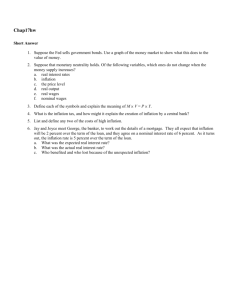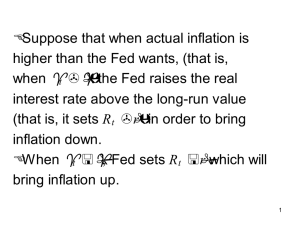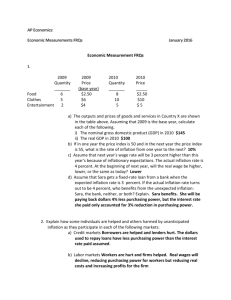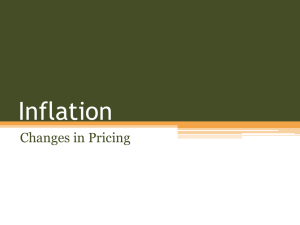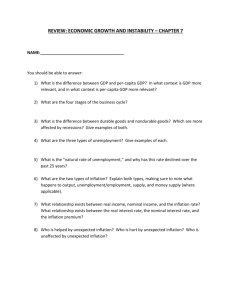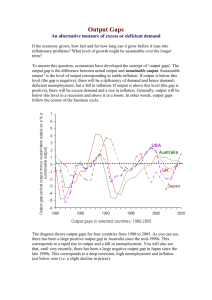Costs And Effects Of Inflation
advertisement
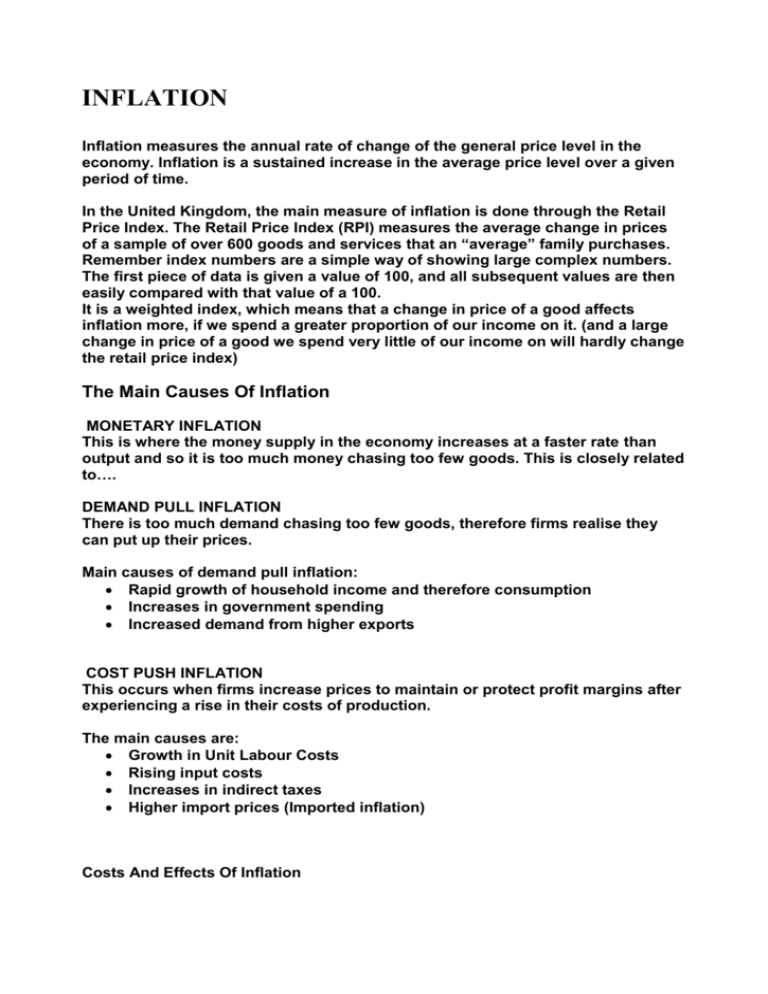
INFLATION Inflation measures the annual rate of change of the general price level in the economy. Inflation is a sustained increase in the average price level over a given period of time. In the United Kingdom, the main measure of inflation is done through the Retail Price Index. The Retail Price Index (RPI) measures the average change in prices of a sample of over 600 goods and services that an “average” family purchases. Remember index numbers are a simple way of showing large complex numbers. The first piece of data is given a value of 100, and all subsequent values are then easily compared with that value of a 100. It is a weighted index, which means that a change in price of a good affects inflation more, if we spend a greater proportion of our income on it. (and a large change in price of a good we spend very little of our income on will hardly change the retail price index) The Main Causes Of Inflation MONETARY INFLATION This is where the money supply in the economy increases at a faster rate than output and so it is too much money chasing too few goods. This is closely related to…. DEMAND PULL INFLATION There is too much demand chasing too few goods, therefore firms realise they can put up their prices. Main causes of demand pull inflation: Rapid growth of household income and therefore consumption Increases in government spending Increased demand from higher exports COST PUSH INFLATION This occurs when firms increase prices to maintain or protect profit margins after experiencing a rise in their costs of production. The main causes are: Growth in Unit Labour Costs Rising input costs Increases in indirect taxes Higher import prices (Imported inflation) Costs And Effects Of Inflation Effect on competitiveness - if a country has higher inflation than the rest of the world it will lose price competitiveness in international markets. The problems of a wage-price spiral – price rises can lead to higher wage demands as workers try to maintain their real standard of living. Higher wages can cause an increase in costs. To maintain their profit margins firms increase prices. The process could start all over again and inflation may get out of control. Consumers and businesses on fixed incomes will lose out. Many pensioners are on fixed pensions so inflation reduces the real value of their income year on year, this means that their demand for goods and services will be reduced. However workers in Trade unions and others with a strong bargaining position are less affected by inflation as they can negotiate wage increases which may mean that their real wages do not fall. Inflation can also cause a disruption of business planning – uncertainty about the future makes planning difficult and this may have an adverse effect on expansion plans and so reduce economic growth. Savers lose out with inflation as the real value/purchasing power of their savings fall However borrowers benefit from inflation as the real value of their debts is actually reduced by inflation.

